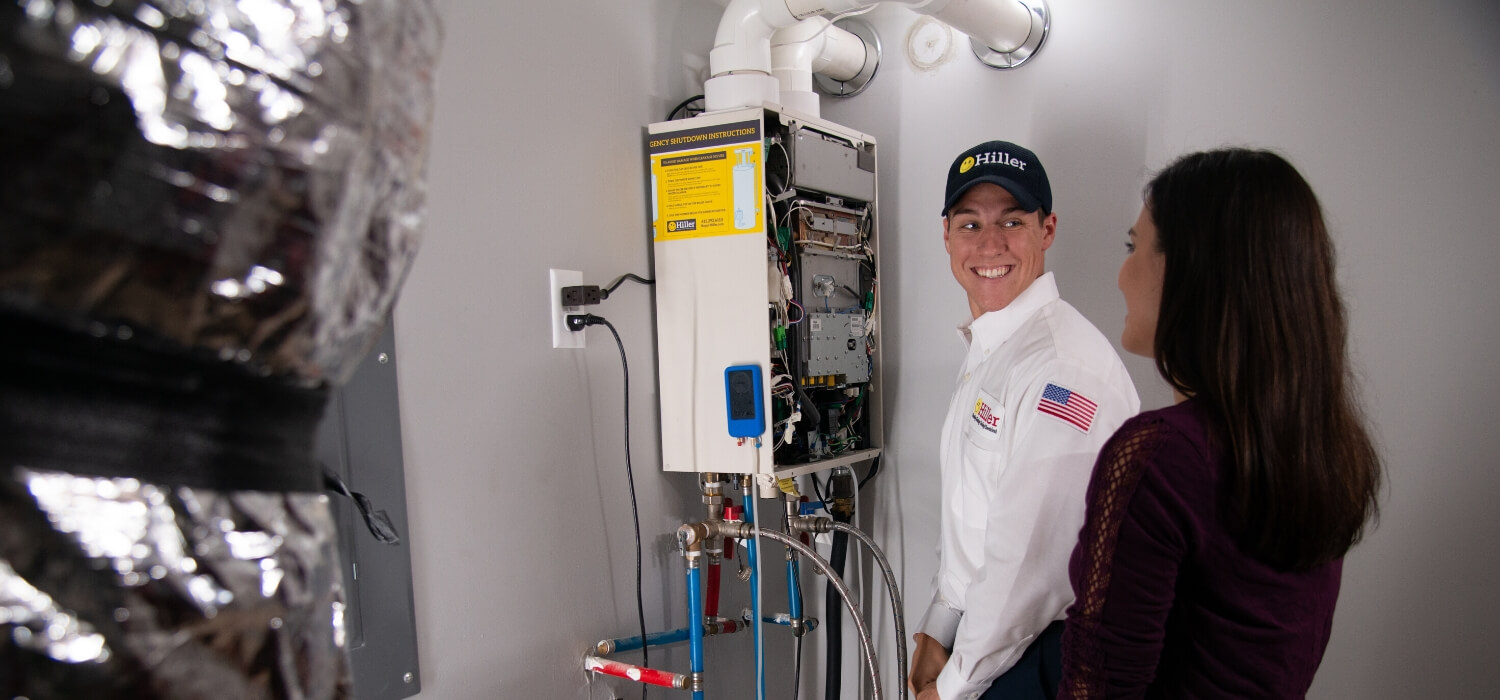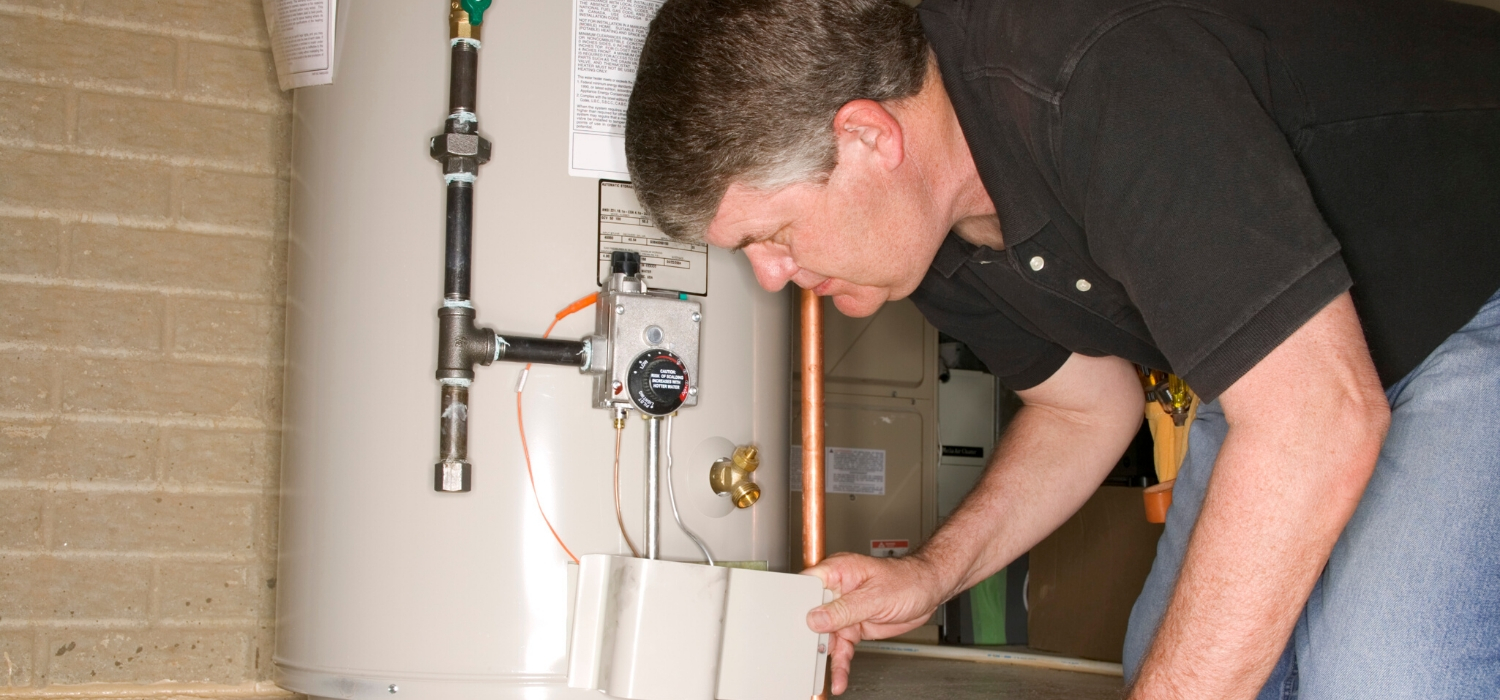Common Water Heater Issues and What You Should Do
Enjoy reading the latest DIY articles and saving money?
Receive our latest helpful hints, tricks and savings, directly to your inbox.
Posted April 13, 2020
Did you know that almost every household in the United States owns a water heater? Often we take the luxury of hot water on demand for granted, but anyone who’s taken a cold shower in winter knows how important it is. Unfortunately, not all water heaters out there function properly — many models are over ten years old. If you are experiencing water heater issues, then you must address them quickly.
Otherwise, it will cost even more to repair or replace — and can potentially harm your property or you. In this article, we’ll walk you through some of the common issues. Hopefully, we can help you repair the problem yourself.
But, if you can’t figure it out, then you’re better off going with a professional. Let’s get started!
What Type of Water Heater Do You Have?

Before we begin it’s first important that you identify the type of water heater you have on your property. There are two main types of water heaters out there: conventional and high efficiency.
Both of these types of products typically use either gas or electricity to heat power. There are also solar water heaters that use a thermal collector on the roof or yard to heat the water.
While these models are not as common, they can cut heating costs in half. In this article, we will focus on conventional and high efficiency.
How Do My Electric and Gas Water Heater Work?

Though they look similar, electric and gas water heaters work very differently. It’s important to know their basic function because often problems can be specific to the heating source.
In the electric model, a thermostat on the side of the machine detects the temperature of the water in the tank. When the temperature needs to rise electricity flows to a heating element suspended in the water.
Gas models also use a thermostat device — typically with a mercury sensor at the tip and an additional sensor called a thermocouple. The thermocouple detects whether the pilot light is on and controls the flow of gas.
When the thermostat drops below the appropriate level gas is released which becomes ignited by the pilot light. The flame heats the bottom of the water tank which causes hot water to rise and cold water to drop.
This natural circulation continues until the water reaches the desired temperature. Then, the thermostat triggers the gas control valve to shut off the flow of gas.
What Are the Most Common Issues and How Do You Fix Them?

In this section, we’ll go over some of the more common problems that people deal with when their water heater starts acting up. Keep in mind that some problems, like a broken pilot light, are specific to gas water heaters.
Also, remember that the best defense against water heater issues is regular maintenance. Check out some of these great tips for improving the lifespan of your water heater.
1. Not Enough Hot Water
This problem is common if you live in an apartment or a house with a lot of people. Too many people use the hot water supply in the tank and the machine struggles to produce more in a timely fashion.
There’s a variety of solutions to this problem, but an easy method is simply to adjust the temperature dial on your heater and wait thirty minutes.
If you have an electrical water heater, then a power surge caused by the device may cause the circuits to trip.
You should contact an electrician quickly if this issue keeps happening — it means wiring issues are causing the machine to draw more power than it needs. You may also want to try draining your water heater.
The process of draining removes the hard water sediments that cause your machine to run less efficiently. If you want a full walk-through of how to drain water your water heater tank, then make sure to read our article before you begin.
If none of these solutions fix the problem, then the issue likely lies in a malfunction component — likely a pressure relief valve or heating element.
2. Changing Water Temperatures
Often it’s a joke that some showers have two temperatures: scolding hot and ice cold. Unfortunately, this common feature can be a symptom of a bigger problem.
If you notice this temperature change when you shower or do the dishes, then you should check the thermostat on the side of your water heater. First, make sure it’s set to your desired temperature.
If it still exhibits drastic temperature changes, then you may need to replace the thermostat or the heating unit inside the product. The problem may also lie in the size of the product. Remember that tanks should hold roughly 20 gallons of water per person living in the house.
3. A Leak in the Water Heater
A water heater leak can cause serious water damage to the floor and electrical components near the device. Remember that you should always turn off the gas or electricity and let the device cool down before inspecting for a problem.
You may be able to fix the leak by tightening screw and pipe connections as these are common causes of minor leaks. However, if you notice a substantial leak at the base of the water heater, then you should contact a technician to inspect and replace it.
4. Rumbling Sounds
Rumbling sounds are a sign of a serious water heater issue. Unusual sounds may come from burning sediments or malfunction heating components. If you think you hear your heater boiling, then you should turn it off immediately.
This symptom is a sign of building pressure in your tank which could cause it to explode. You can likely solve this problem by draining your tank and clearing out any sediments. However, if the problem persists you may want to call a professional.
5. Rusty or Smelly Water
If your water smells then there is likely rust or bacteria in your water tank. These problems can cause orange discoloration and a smell like rotten eggs. However, you should first make sure that your tank is the issue and not the water source itself.
Run cold water and see if the smell persists. If the smell only comes from hot water, then the problem is the water heater. If not, then it’s the water source. If the problem comes from your tank, then it’s likely a malfunctioning anode rod.
An anode rod is responsible for cleaning any bacteria from the tank, so this is the most likely symptom. Unfortunately, changing an anode rod requires extensive knowledge of the system. As such, you will likely need the help of a professional.
6. Poor Water Flow
Changes in the water pressure that comes out of your shower or sink is likely a sign of sediment buildup at the bottom. Follow our previous advice — drain the tank and flush out any of the sediments.
If the problem persists, then you’ll need to check the pipes around your device. Hire a professional plumber to clean or replace the pipes around the water heater.
7. No Pilot Light
Gas water heaters require a pilot light to ignite the gas that warms the water. If your pilot light is out, then try reigniting it by repeatedly switching the ignitor switch. If your pilot light continues to go out, then it’s a symptom of a larger problem.
You can first try cleaning it — sometimes dirt or grime can buildup and snuff out the spark.
However, the problem can also cause things like malfunctioning thermostats, broken gas valves, or air in the gas line. First, try cleaning it and if it still goes out, then troubleshoot the various parts and replace whichever one malfunction.
Why Is It Important to Fix a Faulty Water Heater?

Often people neglect their water heaters when they start exhibiting signs of breaking down.
This is one of the worst things you can do as it just makes the issue more dangerous, expensive and harder to resolve. Here are the top three reasons why you deal with your water heater issues as soon as they arise.
1. Can Potentially Be Dangerous
Water heater tanks undergo a lot of pressure in their lifetime. Too much pressure, or a crack in the interior, can cause the device to burst open or explode.
While these instances aren’t common, when they do happen they can be dangerous to anyone in the house. They also cause a lot of damage to the house, which you will need to repair.
Usually, these instances are caused by a broken pressure release valve or too much sediment buildup at the bottom of the tank.
As such, maintenance like draining is important if you want to prevent it from happening.
2. A Broken Water Heater Is Costly
A broken or malfunctioning water heater can raise your gas or electricity bill considerably. Water heaters with too much sediment at the bottom of the tank require more energy to adequately heat the water.
Often even with the increase in energy the water still doesn’t get heated properly. So, when your water heater is broken you pay more money for sub-par water temperature.
A broken water heater can also leak which causes water damage to other areas of your house.
In some scenarios, it can even explode and cause serious structural damage that will require costly repairs. So, you can save a lot of money simply by taking care of your water heater.
3. It’s Better for the Environment
Did you know that our space heating and water heating account for roughly two-thirds of all energy consumption in the United States? Conventional water heaters already use a lot of energy — even when they’re operating under optimal conditions.
When water heaters do start acting up they can waste huge amounts of energy that does absolutely nothing. As such, fixing your water heater issues as they occur can save a large amount of energy which helps the environment.
How Often Should I Replace My Water Heater

Generally, most water heaters last between eight and ten years.
So should you replace your whole system after this time? Well, not always.
The date of expiration differs from model to model — some may operate longer, while others may give out before their time. This fact is especially true if you have a new model water heater.
These typically last much longer than the older, traditional models. It’s also important to remember that the tank elements will likely outlast the heating components.
If your problem is a sudden lack of hot water, then you can perform some tests and install some new components. If the problem isn’t the heating components, then you will likely need to replace the water heater tank itself.
This job can get complicated, so it’s best to rely on a professional unless you have extensive knowledge of the installation process. Check out our guide on everything you need to consider for a water heater installation.
Need Any Help With Your Plumbing, HVAC or Electrical Systems? Call Hiller!

We hope this article helped you figure out your water heater issues. Unfortunately, many times the problem isn’t cut and dry — more often than not it relates to the specific model used.
If you’re more confused than when you started, then it’s time to contact a plumbing, heating, cooling and electrical professional like Hiller. Hiller has been offering exceptional services since its launch in 1990.
Regardless of your water heater problem, we can help you get warm water flowing again as soon as possible.
If you live in the Tennessee, Southern Kentucky, or Northern Alabama area, then you have access to Hiller’s round-the-clock services — 7 days a week, 365 days a year. Request an appointment today!
 Daily Promotion
Daily Promotion
$500 Off Tankless Water Heater
Upgrade your comfort and give back this season.
Get Promotion